Self-Care is important because it helps keep mental health at optimum levels. Without self-care, burnout, depression, and anxiety are likely outcomes of everyday life.
What is Self-Care?
Self-care is quite aptly named since it is the entire range of things that are considered caring for yourself. You can think of it as anything people do in their daily lives that improve their physical health, as well as their emotional and spiritual health. Self-care is one of the vital components of the recovery process. Typically, by the time many addiction problems are addressed there has been significant neglect of the individual’s physical, spiritual, and emotional health.
Why Self-Care is Important
After months or even years of living with substance use disorder, many people discover that they no longer have the same quality of life as before. This is due to the health and self-care sacrifices they made while battling addiction. This can make the recovery process and sober living more challenging, but incorporating a holistic recovery process can help provide the foundations for an effective self-care routine.
How Does Self-Care Help in Addiction Recovery?
Creating a well-rounded self-care routine while in addiction recovery is important because it helps the patient stay on their recovery path. There are many benefits to practicing adequate self-care, and by taking a more active part in their recovery process, many patients find that it helps them to strengthen their overall recovery. Finding the right rehab facility is an important aspect of creating effective self-care routines.
One of the crucial components of a solid recovery effort is properly managing psychological and emotional health. This includes things like making sure there is an appropriate social engagement level, while also maintaining personal boundaries and limiting stressful events or situations.
Anyone that has been living with substance use disorder likely used drugs and alcohol as ways to escape, cover, or otherwise ignore things like stress, pain, or uncomfortable thoughts or emotions. In some cases, this drug or alcohol use was used to minimize or escape some of the symptoms associated with undiagnosed or untreated mental illness.
Self-care in addiction recovery helps to improve both physical and mental health so that drugs or alcohol are less appealing methods of coping with stress or dealing with anxiety. Since physical and mental health is improved, there is a corresponding drop in the draw to use drugs or alcohol to feel better. Keeping to self-care routines over longer periods can help achieve more robust health goals, while also leaving less time to use substances like alcohol or drugs.
Types of Self-Care
There are many different types of self-care that an individual will be exposed to in treatment, but most of them will fall into one of three categories. These categories include personal growth activities, physical outlets or productive activities, and social activities.
Personal Growth Activities
One of the most important categories of self-care is the implementation of personal growth activities. These can be any emotional, intellectual, financial, occupational, or spiritual activities. This might sound like a wide range of activities, and you’d be right. The objective of personal growth is so open-ended and diverse that there are countless things that can act as personal growth activities.
One easy example of personal self-care is committing to better health by getting adequate sleep every day. Another could be taking deep breaths and meditating for a short time each day, or attending a yoga class to improve overall health and flexibility. Activities like yoga can also be considered spiritual self-care since they help to promote a holistic view of wellness.
Emotional self-care can be any activity that helps to expand your understanding of your emotions and the emotions of others. Creative pursuits like writing, cooking, gardening, music, and crafting are all similar and will have similar effects. These creative activities have been studied extensively and are shown to increase joy, reduce stress, minimize anxiety, and promote healing.
Productive or Physical Activities
Productive or physical activities are also crucial to a successful recovery effort. Productive activities are meant to physically occupy the patient and take up a portion of their time with activities designed to lead to a healthier physical condition.
In many cases, these activities will be part of a daily routine to a significant extent. Things like working out, taking a walk, eating a healthier diet, taking medications as prescribed by a healthcare provider, and avoiding drugs and alcohol are all examples of productive or physical activities.
Social Activities
Social activities are important for the recovery effort because they help the patient get back into social circles that do not involve substance use. This not only keeps the patient in relatively frequent contact with family and friends, but those people are also a significant source of support for the individual.
Keeping in contact with them and socializing with them is a great way for the recovering individual to stay positive during recovery. Meeting with friends and family, doing volunteer work, and engaging in healthy and positive social media use are all great ways to integrate more social interaction into the daily life of someone in recovery. For many people in recovery, this social interaction is one of the most important parts of their recovery journey, because it keeps them in close contact with crucial members of their support network.
Incorporating Self-Care Into an Addiction Recovery Plan
Some of the experts at Psychology Today now recommend incorporating mindfulness exercises like meditation, yoga, and other activities that promote mindfulness into your daily routine are incredibly effective at helping to reduce stress levels. Additionally, they can help improve self-awareness, which can have additional benefits if cognitive behavioral therapies are being used.
If you or someone close to you has struggled with substance use disorder or alcohol use disorder, the road to recovery starts with a single step, and that step is reaching out for professional treatment. By reaching out to admission staff, you can begin the journey to recovery today by building a personalized addiction recovery plan that includes a well-rounded self-care routine.


